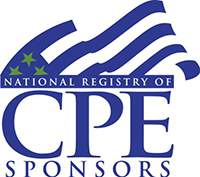
The Houston Area Chapter of the Association of Certified Fraud Examiners (Houston ACFE) is happy to partner with Audimation Services to host a virtual seminar in lieu of the usual in person meeting.
Title: DECEMBER MEMBERS' APPRECIATION EVENT - 2020
This is a seminar that will have these two topics.
Topic 1: Election Fraud: A
Study Topic 2: Elder Fraud - What is It and how to avoid it
FREE FOR MEMBERS! This is a great opportunity to join the ACFE chapter. You can join the chapter for less than the cost of this seminar presentation, and then join us for free for the December Members' Appreciation Event, and discounted future events.
Two Presentations
Topic 1: Election Fraud: A Study
Presenter 1: Robert M. Stein, Ph.D., Lena Gohlman Fox Professor of Political Science at Rice University
Description: As a result of the COVID-19 virus, many states have both adopted and expanded opportunities for voters to cast their ballot by mail. Approximately 75% (Love et al 2020) of all voters in the 2020 Presidential election were eligible to submit their ballot by some form of mail voting. Critics of mail voting have identified a number of shortcomings with this mode that may impact the integrity (validity/eligibility) of the ballot cast and the secrecy of a voter’s ballot choices. Both conditions can lead to voter fraud and voter coercion. These concerns remain largely untested and unexamined by researchers/scholars. The absence of reliable and independent measures of the integrity of mail voting undermines voters’ confidence in the outcome of elections where a high share of the vote is cast by mail (Atkeson and Mann 2020).
Professor Bob Stein at Rice University is studying election fraud and will be speaking about this topic at the December event. To assist with his research, The ACFE Houston chapter will offer members an opportunity to participate in this research through a voluntary study which will be sent out before the presentation.
Bio: Robert M. Stein, Ph.D., Lena Gohlman Fox Professor of Political Science at Rice University, Faculty Director of the Center for Civic Engagement, Fellow in Urban Politics at the Baker Institute and former Dean of the School of Social Sciences (1996-2006). Professor Stein is an expert on urban politics, public policy and voting behavior.
His current research, funded by the Arnold Foundation, Pew Charitable Trusts and the National Science Foundation focuses on voting behavior and election administration and emergency preparedness.
He is the author of "Urban Alternatives: Private and Public Markets in the Provision of Local Services" for which he received a special award from the Urban Politics and Policy Section of the American Political Science Association in 1991. Stein is co-author of "Perpetuating the Pork Barrel: Policy Subsystems and American Democracy," published in 1995.
During his years at Rice, Stein has received numerous awards, including the George R. Brown Award for Superior Teaching in 1998 and 1987.
Learning Objectives:
- Define Election Fraud
- Differentiate between election fraud and errors in voting
- Identify common schemes of election fraud and how they occur
Second Presentation
Topic 2: Elder Fraud - What is It and how to avoid it
 Presenter 2: Steve Bodge, CFE, CIFI, SCLA, WCLA
Presenter 2: Steve Bodge, CFE, CIFI, SCLA, WCLA
Description: Each year, millions of elderly Americans fall victim to some type of financial fraud or confidence scheme, including romance, lottery, and sweepstakes scams, to name a few. Criminals will gain their targets’ trust and may communicate with them directly via computer, phone, and the mail; or indirectly through the TV and radio. Once successful, scammers are likely to keep a scheme going because of the prospect of significant financial gain.
Seniors are often targeted because they tend to be trusting and polite. They also usually have financial savings, own a home, and have good credit—all of which make them attractive to scammers.
Additionally, seniors may be less inclined to report fraud because they don’t know how, or they may be too ashamed at having been scammed. They might also be concerned that their relatives will lose confidence in their abilities to manage their own financial affairs. And when an elderly victim does report a crime, they may be unable to supply detailed information to investigators. With the elderly population growing and seniors racking up more than $3 billion in losses annually, elder fraud is likely to be a growing problem
In this presentation we’ll explore the vulnerability of our elderly family members and associates to economic exploitation from those targeting them due to their age and related factors. We’ll discuss various schemes as well as the mindset of those committing these crimes. We’ll also explore our mindset and the adjustments we must make in order to relate to our elderly population and protect them.
Bio: Steve Bodge, CFE, CIFI, SCLA, WCLA, is a Major Case Manager for the Special Investigation Unit of Nationwide Insurance. This unit is responsible for liaising with law enforcement, investigation of organized crime, staged accident fraud, medical provider fraud, and other types of complex insurance fraud. Steve is also an adjunct instructor in criminal justice at West Virginia University Parkersburg. He has worked investigating insurance fraud for many years, and prior to that was in law enforcement in West Virginia. Steve is a graduate of the Fairmont State University and the FBI National Academy.
Steve is active in many professional organizations including
- IAFCI- International Association of Financial Crimes Investigators
- MAORCA- Mid Atlantic Organized Retail Crime Alliance
- IASIU - International Association of Special Investigation Units
- OROCC- Ohio Regional Organized Crime Coalition
- C.L.E.A.R. - Coalition of Law Enforcement And Retail
Learning Objectives:
- Define elder fraud
- Identify common schemes of elder fraud and how it can be avoided
- Identity useful responses and prevention techniques to avoid scams
Agenda:
8:45 am
|
Sign into Webinar opens
|
09:00 am - 10:30 am
|
Speaker 1 Presentation
|
10:30 am - 11:00 am
|
ACFE Chapter News & Awards
|
11:00 am - 12:00 pm
|
Speaker 2 Presentation
|
Recommended CPE Credits: 3 hours CPE credit
Event Policies:
If you have registered and/or paid for an event and you need to cancel, you MUST email events@houstonacfe.org no later than 5 days prior to the event to request a refund and/or cancel your registration.
For more information regarding refund, complaint and/or program cancellation policies, please visit the Terms & Conditions section of the website, or email us at events@houstonacfe.org.
Attendance Requirements: In order to receive CPE credit, you must attend at least 50 minutes of each hour presented, and you must answer at least three polling questions per hour presented.
Additional Information:
Delivery Method: Group Internet Based
Prerequisites: Not Applicable
Field of Study: Specialized Knowledge
Who Should Attend: Anti-fraud professionals, Auditors, Accountants, Attorneys, Investigators, Law Enforcement, Educators, Students
Advanced Preparation: None
Program Level: Basic
NASBA Sponsor No. 125230

The Houston Area Chapter of the Association of Certified Fraud Examiners is registered with the National Association of State Boards of Accountancy (NASBA) as a sponsor of continuing professional education on the National Registry of CPE Sponsors. State boards of accountancy have final authority on the acceptance of individual courses for CPE credit. Complaints regarding registered sponsors may be submitted to the National Registry of CPE Sponsors through its web site: www.nasbaregistry.org}